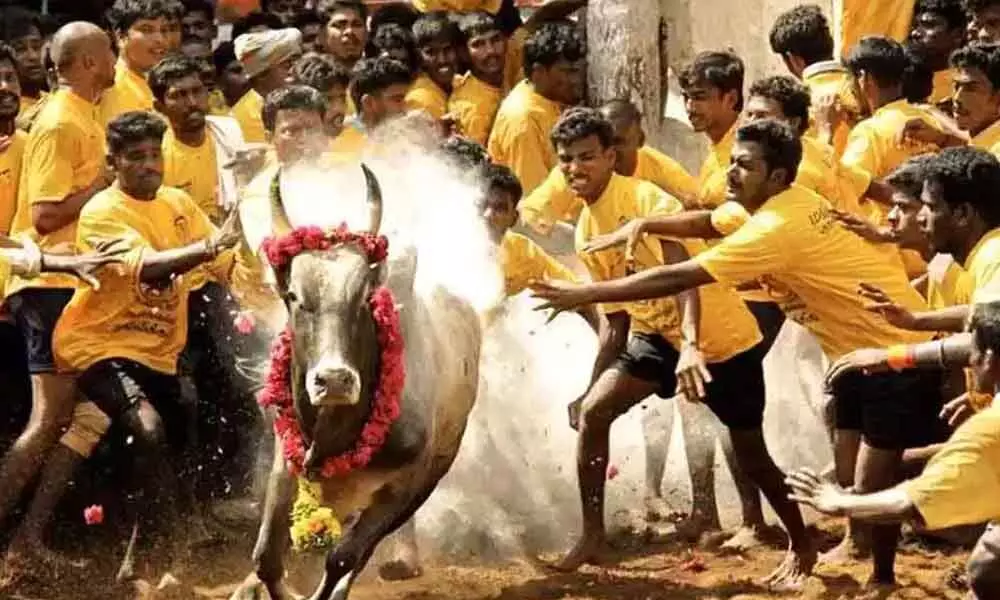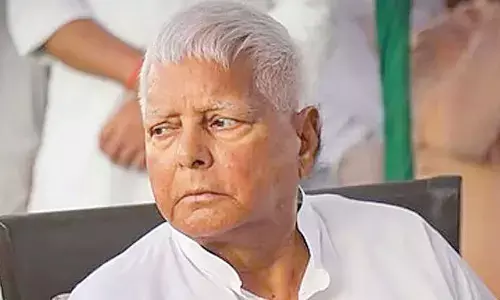Supreme Court Upholds Tamil Nadu Law Legalising The Bull-Taming Sport Jallikattu

Jallikattu (Representational Image)
- The Supreme Court upheld a law today that permits the bull-taming sport of "Jallikattu" in the state of Tamil Nadu.
- Jallikattu is a bull-taming sport that is typically played during the Pongal harvest festival in Tamil Nadu.
The Supreme Court upheld a law today that permits the bull-taming sport of "Jallikattu" in the state of Tamil Nadu. The five-judge constitution bench, presided over by Justice KM Joseph, ruled that the judiciary could not have a different position in light of the legislature's declaration that Jallikattu is a component of Tamil Nadu's traditional heritage.
Jallikattu is a bull-taming sport that is typically played during the Pongal harvest festival in Tamil Nadu. It is also known as "Eruthazhuvuthal." Young men compete in the sport by trying to hang on to a bull as long as they can in an effort to tame it.
According to the bench, which also included Justices Ajay Rastogi, Aniruddha Bose, Hrishikesh Roy, and C T Ravikumar, Jallikattu was found to be subject to the Prevention of Cruelty to Animals Act's prohibitions in 2014 because of the way it was done at the time. However, the amendment aims to lessen the suffering and agony experienced by animals. It further stated that the adjustments cannot be criticised because they have the President's approval.
Despite stating that the sport has been around for at least a century, the court chose not to address the issue of whether Jallikattu is a fundamental aspect of Tamil culture because doing so would require a thorough investigation and was better left to the legislature.
Meanwhile, the panel said that the judiciary would not disagree with the legislature's declaration that Jallikattu is a component of Tamil Nadu's cultural heritage. The court further stated that it did not agree with the 2014 ruling's determination that Jallikattu is not a part of the state's cultural heritage and that there was insufficient evidence before the court to support that conclusion.
Next Story










